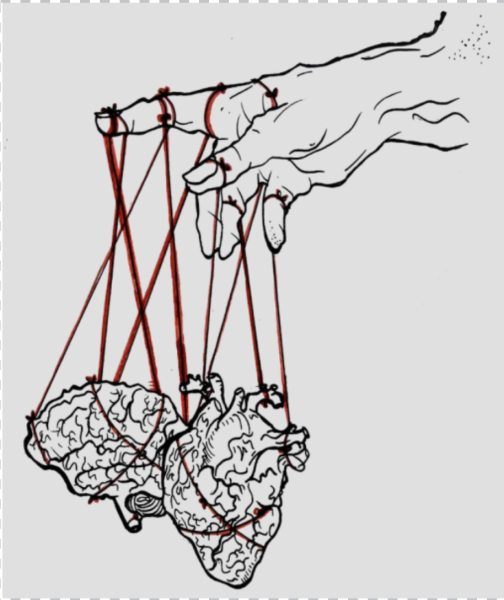A Desperate Plea
A few weeks ago, I was having a conversation with a friend who brought up an Instagram “debate” about microaggressions in our school we had been a part of two years ago. She shared some screenshots of said debate, and the more we looked through them, the more we realized retrospectively that it was far from a “debate”. The harsh language and accusations viciously hurled at us in such a public sphere by two boys could only be categorized as racial gaslighting.
The University of Cincinnati defines racial gaslighting as “a form of psychological manipulation that makes people of color question their own experiences of racism”. After my friend and I’s conversation, I decided to review the screenshots shared with me to see if they accurately fit under this term.
A claim made by one of the boys was the following: “if you compare the levels of racism in our school […] to other schools, it’s completely different […] our school scrapes the bottom of the barrel in terms of racism compared to shit happening worldwide”. This (dubious) argument is invalidating the experiences of students of color throughout the school such as my friend and I, who have been brave and strong enough to choose to stand up and speak out. Whether it takes the form of comments in the hallways, microaggressions, slurs, or being more likely to be shot by the police for no reason; racism is racism. He was in no place to tell students of color that their experiences are somehow lesser than others. This qualifies as racial gaslighting.
Here is another vicious statement made to my friend: “Your desperate pleas for attention are weak”. Calling students of color’s right to be treated fairly, not hear racial comments and slurs in the hallways, and not have to question their worth on the basis of their skin color a “plea for attention” qualifies as racial gaslighting.
These boys were indubitably attempting to undermine the legitimacy of students of color’s experiences with racism at our school. While I can spend time critiquing their actions and discussing how they were inherently perpetuating ignorance and tolerance for racist behavior in our institution, what I am more interested in is the effect of racial gaslighting on students of color. As a black woman who has gone through periods of both silence and activism, I am able to pinpoint my experiences with racial gaslighting at ISL and the damaging effects it has had on my mental health and my character.
For instance, when I was moving through primary school, I began to have increased experiences with racism in the form of jokes and microaggressions. A particular and personal instance that has always remained with me is boys calling me “cauliflower head” for years due to the texture of my natural hair, unique to other students around me. When I spoke out against how much this upset me, people would laugh at me, call me dramatic, and completely invalidate my discomfort in the face of their microaggressions and taunts. Between when I was first called this in Year 4 and today, I have worn my natural hair to school maybe five times, purely out of necessity. Within myself, I continue to battle insecurities about my natural hair; I am constantly changing hairstyles, but only during holidays to ensure that I come to school with a hairstyle that hides my natural hair. The rare occurrences even at home when my natural hair is out, I panic, hate the way it looks and desperately attempt to straighten it for hours at a time, while simultaneously trying to book a new hair appointment. A lot of the time, I will cancel plans or refuse to leave the house.
In my ten years at ISL, I have grown up hearing people use slurs and, upon my expression of discomfort, tell me that it’s not like they were saying it to anyone’s face! People have told me that I don’t have to keep speaking up about the comments that I still hear regularly because we’ve made so much progress! I have had people tell me when I speak out against racist jokes made about my own father that I shouldn’t be so dramatic! It was only a joke! What the people who make these comments don’t realize is the long-term effect of them on me, and on other students of color. These comments make us question ourselves and make us re-evaluate our (justified!) reactions to remarks that make us feel worthless and lesser than. If you choose to make a racist joke or comment around a person of color and they choose not to respond or laugh along with you, it is undoubtedly due to the result of years of constant racial gaslighting that has left them feeling powerless and unable to use the voice that they were given.
While the boys who engaged in this “debate” and chose to gaslight my friend and I may not even remember that they were the ones to make these comments, we will never forget them, because to this day, whether we admit it or not, there is a small part of us that asks ourselves: “what if they were right about this? What if this wasn’t as big of a deal as we made it out to be? Maybe I should have stayed silent.”
Today, I reach out to all students of color who read this article, and I tell you that you were right to speak up. Your cause for anger, concern, and activism is valid and legitimate. Your experiences are valid and legitimate. Your “desperate pleas for attention” are always valid and legitimate.


